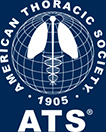The Centers for Medicare & Medicaid Services (CMS) has amended its incident-to regulations to clarify that the physician or other practitioner who bills for incident-to services must be the same person who directly supervised the ancillary personnel who provided the services. The direct supervision requirement for incident-to services has not changed – the physician must be present in the office suite (but not the exam room) and immediately available to furnish assistance and direction throughout the performance of the service.
This does not mean that the billing/supervising physician also has to be the one who initiated the original care plan or service upon which the incident-to service is based. Under the clarified regulations, scenarios like the following are acceptable: Dr. A treats Mrs. Jones on Monday, initiating a plan of care and asking her to return in one week for followup with the nurse. If Dr. A is on vacation when the patient returns and his partner, Dr. B, directly supervises the nurse visit, Dr. B must bill for the service under his own provider number, according to the amended regulations.
When incident-to services are provided, practices will need to decide which physician qualifies as the supervising physician. Although claims don’t identify that services were provided incident to a physician’s care, medical record documentation should clearly name the supervising physician.
Note that services and supplies provided incident to transitional care management (99495, 99496) and chronic care management services (99487, 99489) remain an exception to the direct supervision requirement. These can continue to be provided under the general supervision of the physician (or other practitioner). General supervision means the service is furnished under the physician’s overall direction and control, but the physician’s presence in the office suite is not required.
CMS also amended its regulations to clarify that ancillary personnel are prohibited from providing incident-to services if they have been excluded from Medicare, Medicaid, or any other federally funded health care programs by the Office of Inspector General or have had their Medicare enrollment revoked for any reason. Such individuals are technically prohibited from providing services to Medicare beneficiaries, but CMS makes it explicit in this case.


